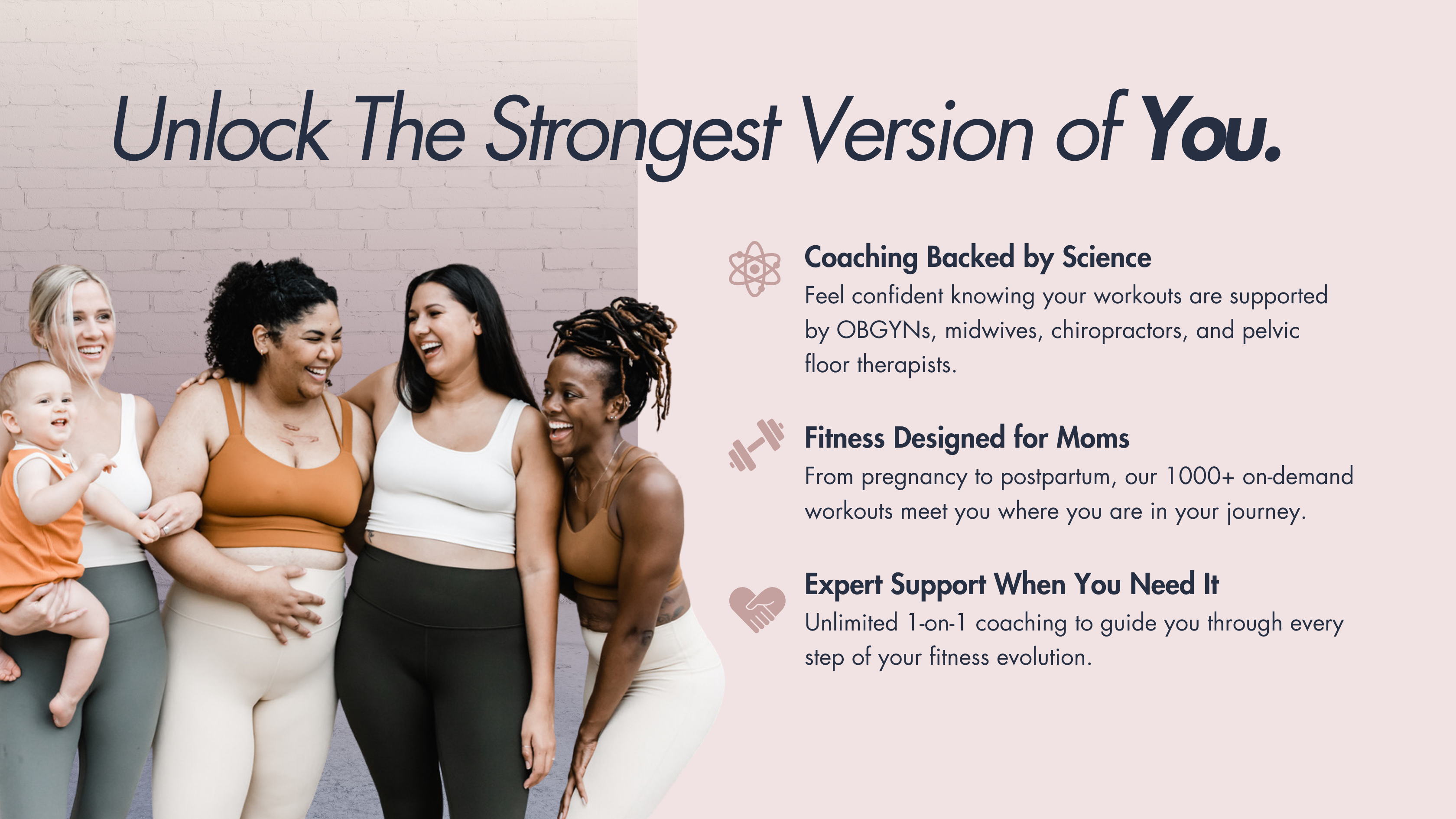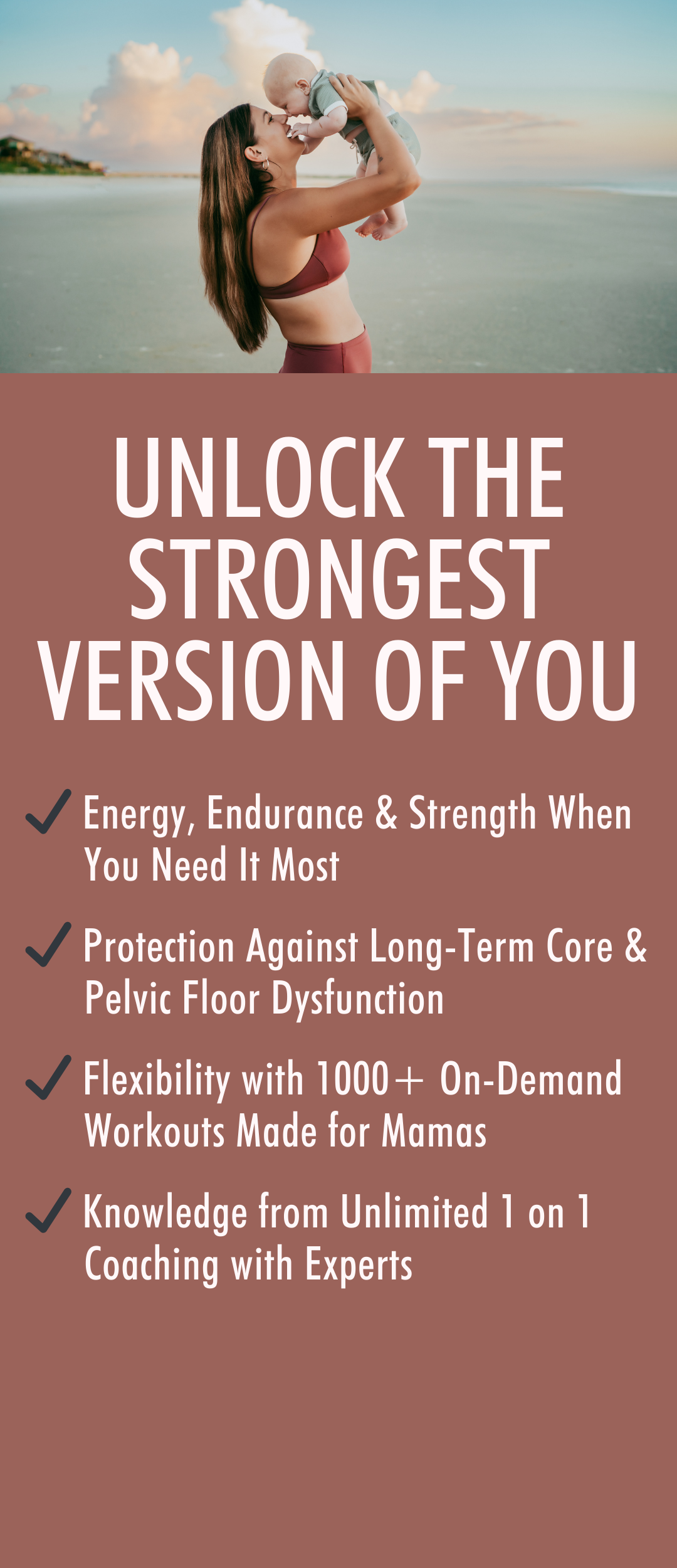Running 6 Weeks Postpartum | Safe Return to Running Tips
Running 6 Weeks Postpartum: What You Need to Know Before You Lace Up
By Brooke Cates, Founder of The Bloom Method and Pre & Postnatal Fitness Coach with 15+ Years of Experience
Let’s get one thing straight... if you’re itching to go for your first run postpartum, I get it. You spent months growing a human, navigating all the wild changes that come with that, and now you’re ready to move. To feel strong. To feel like you again.
But before you lace up and head out for that first run postpartum, let’s talk about what your body might really need first. Because the truth is, “six weeks postpartum” doesn’t automatically equal “go time.”

So... Can You Start Running 6 Weeks Postpartum?
This question comes up constantly: “Brooke, when can I start running again?”
The honest answer? It depends.
One woman might be physically ready at 8 weeks, another might need several months. What matters isn’t a timeline on a calendar—it’s how your body responds. Are you leaking during or after runs? Feeling pulling or heaviness in your pelvic floor? Any pain or discomfort when you move? Those are not signs to power through. They’re your body’s way of whispering, “Hey, not yet.”
If you ignore those whispers, they eventually turn into screams... and by screams, I mean injury, pelvic floor dysfunction, or complete nervous system fatigue.
Postnatal Return to Running Guidelines (That Actually Work)
The old-school idea of “rest until six weeks, then go for it” is outdated and honestly, a little reckless. The postpartum return to running isn’t about pushing harder, it’s about rebuilding smarter.
Here’s what I tell my clients:
-
Build the foundation first. Before you think about running, reconnect to your core and pelvic floor. You need that foundation to handle impact safely.
-
Test, don’t assume. Try lower-impact movement like walking or Bloom’s core connection classes. Notice how your body responds.
-
If it hurts or leaks, pause. That doesn’t mean “never run again.” It just means your body needs more support before it can handle that load.
-
Progress gradually. Alternate jogging and walking, build endurance over time, and track how your core feels afterward.
Running post pregnancy is absolutely possible. You just need to work with your body, not against it.

Why Foundational Work Isn’t “Boring”
I know what you’re thinking... “Brooke, I don’t want to just breathe and do tiny core movements—I want that endorphin rush.”
But listen... those so-called “boring” rehab exercises are pure magic. That slow, intentional reconnection phase is where you lay the foundation for everything you do later.
I’ve coached hundreds of thousands of women—from new moms to D1 athletes and Ironman competitors—and you’d be shocked how many of them never learned how to properly connect to their core. Not even once.
When you take the time to build that connection, your runs later feel smoother, faster, stronger, and way more enjoyable. Because your core isn’t just your abs. It’s your entire system—your shoulders, back, hips, and even down to your knees. That’s your power center.

The Masculine vs. Feminine Approach to Training
Here’s the other big piece no one talks about... women have been conditioned to train like men.
More intensity. More grind. More burn.
But postpartum fitness isn’t about muscling through pain. It’s about listening differently. Moving differently. Training in a way that aligns with your body’s rhythms, not fighting them.
When you rebuild from a place of awareness instead of ego, you reconnect to your strength in a way that feels sustainable—and honestly, deeply empowering.

How to Prepare for Your First Run Postpartum
If you’re ready to start planning that first run postpartum, try this checklist first:
✅ Can you walk briskly for 30 minutes with no pain or heaviness?
✅ Can you sneeze, laugh, or jump without leaking?
✅ Have you completed at least 8–12 weeks of consistent core reconnection work (like Bloom’s Core Code)?
✅ Have you focused on breathing and posture mechanics?
If you answered “yes” to most of these, you’re likely ready to start easing in.
Start small. Think run-walk intervals. Focus on your breath and posture. Keep runs short and restorative at first, not punishing.
____________________________________________________________________________
Real Talk: The 6-Week Rule Is a Myth
Here’s a little secret from inside the industry... the “six-week clearance” from your doctor doesn’t mean your body is fully healed. It just means you’re cleared from a medical standpoint.
It doesn’t account for how your connective tissue, fascia, and deep core are functioning. That’s where we see women hit walls a year or two later—because they skipped over the foundation and went straight for the burn.
That’s what I call masculine fitness conditioning... the belief that faster is better, that rest is lazy, that slower work doesn’t count.
At Bloom, we’re here to change that narrative.
FAQs: Your Postpartum Running Questions Answered
Q: How soon can I start running after giving birth?
A: Most women need at least 12 weeks of gradual rehab before high-impact exercise. Focus on rebuilding your core and pelvic floor first.
Q: Can I run after a C-section?
A: Yes, but only once your scar tissue is healed and you’ve reconnected to your deep core. You’ll need extra focus on breathwork and posture before adding impact.
Q: How do I know if I’m ready for my first run postpartum?
A: If you can move, breathe, and handle daily tasks (lifting your baby, carrying groceries) without discomfort, you’re on the right track.
Q: Will running make diastasis recti worse?
A: If your core isn’t reconnected, yes. But once you’ve rebuilt your foundation, running can actually support your recovery by improving circulation and strength.

The Bottom Line
You don’t need to “earn” your way back to running... you just need to prepare for it differently.
Your postpartum journey isn’t about going back to who you were. It’s about discovering how strong, intuitive, and connected you’ve become.
Running 6 weeks postpartum isn’t off limits—it just needs to happen on your body’s timeline. When you approach your workouts with intention instead of impulse, you’ll get faster, stronger, and more aligned than ever before.





